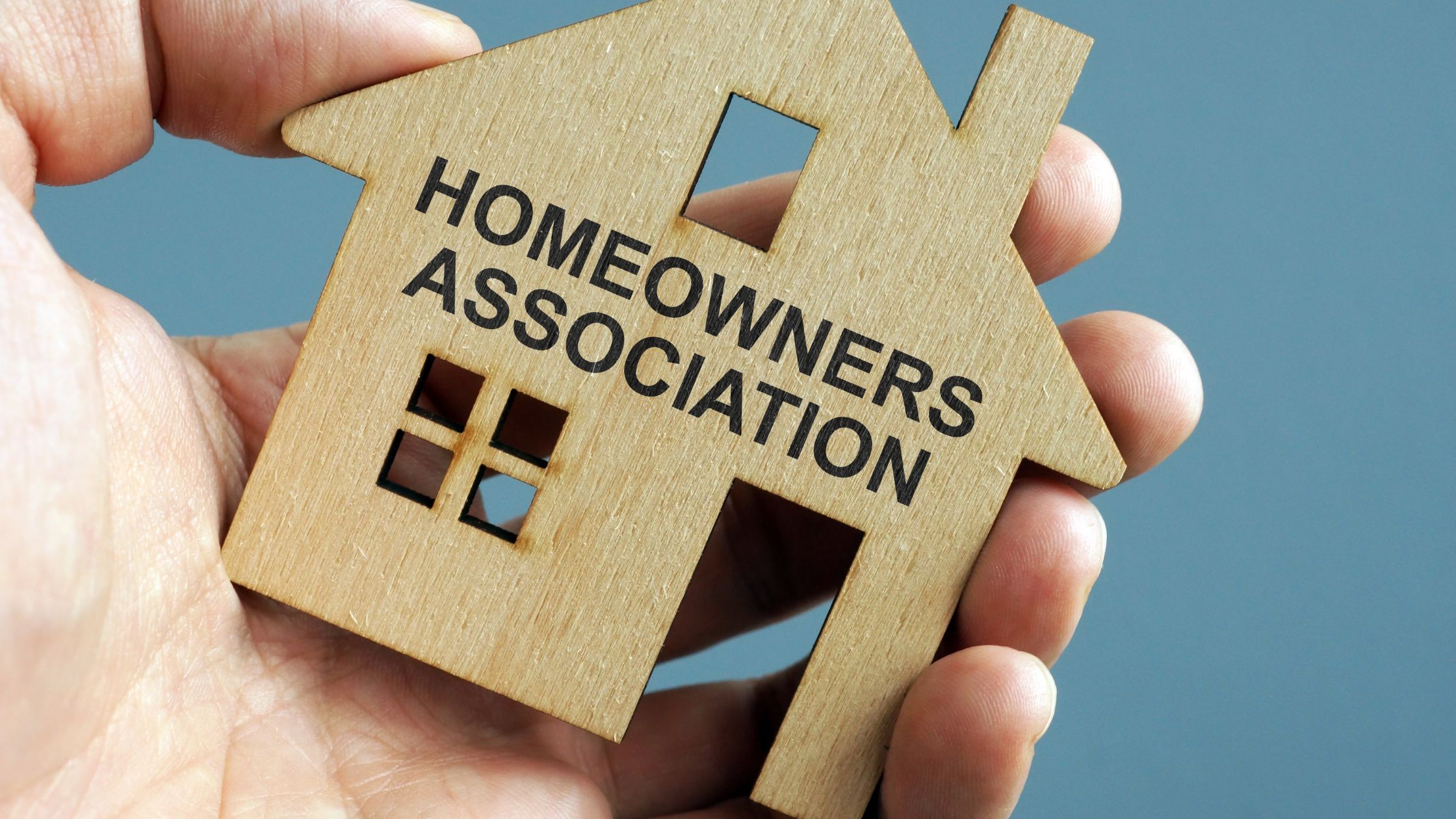
Posted By admin
 Nov 21, 2024
Nov 21, 2024 08:46:21am
08:46:21am Managing a homeowner association (HOA) can often feel like hosting a never-ending neighborhood community — everyone has an opinion, surprises are around every corner, and sometimes you just wish for a little peace. Affordable HOA software offers the perfect solution, helping streamline operations, enhance communication, and foster a sense of unity within the community.
According to the Foundation for Community Association Research, 38% of owners are satisfied with their association.
As a real estate professional, you realize how important it is to keep the community running smoothly while balancing homeowner expectations. With nearly millions of residents living in HOA communities, the complexities of management are growing, making efficient solutions more critical than ever.
HOAs play a vital role in preserving property values and ensuring community standards are upheld. From managing shared amenities like pools and parks to enforcing rules and tracking dues, the responsibilities are extensive. Without the right tools, these tasks can become overwhelming for property managers. Affordable HOA software bridges this gap by offering tailored digital solutions for these specific needs, enabling smoother operations and a better community experience.
A well-designed HOA software solution isn’t just about convenience—it’s about transforming community living.
Let’s see what are the top benefits: –
A thriving community relies on clear, timely, and consistent communication to keep residents informed and engaged. Include sharing updates about:
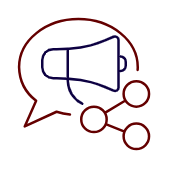
HOA software streamlines the process of sending messages to all residents or specific groups by automating mass communications. Messages sent through various formats, such as:
Automating communications reduces the manual effort needed by property managers or board members, saving time and ensuring no important updates are missed.
For example, if the HOA needs to notify all residents about an upcoming water shutoff for repairs, the software can instantly send an SMS alert to everyone. This ensures that all residents are aware and can plan accordingly, avoiding frustration and enhancing community trust.
HOA software enables property managers to maintain a database of detailed profiles for every resident in the community. Includes:
All this data is stored in one place, making it quick and convenient for management to retrieve resident details when needed. By having a clear view of each resident’s status, property managers;
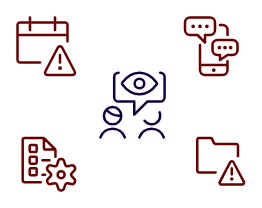
With HOA software, easily track which members are current on their dues, send reminders for overdue payments, and even provide member-specific notices. This level of organization minimizes administrative headaches and helps keep the community informed and engaged.
Automated billing features that make it easier to manage dues, assessments, and other fees for property managers – generating invoices, sending out payment reminders, and tracking outstanding balances, all from a single platform.
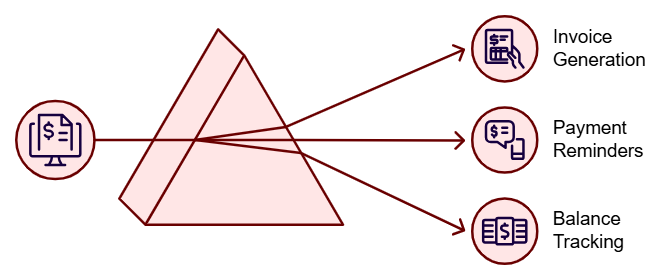
HOA software eliminates the need for manual processes by automating repetitive tasks related to billing and payments. Includes:
All billing and financial information is managed within the software, reducing the need for separate systems or spreadsheets. This centralization improves efficiency and makes it easy to track and reconcile accounts. With automated features, property managers are able to:
If an HOA fee is due on the 1st of the month, the software can automatically generate and send invoices on the 25th of the previous month. If a resident hasn’t paid by the due date, the system sends a follow-up reminder, ensuring timely payments without manual intervention.
In many communities, residents need to obtain permits for activities such as:
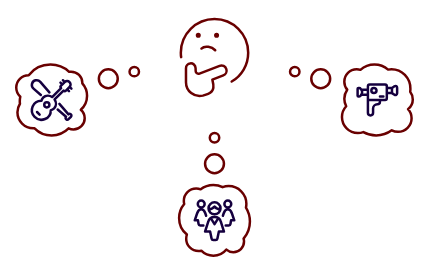
HOA Software provides a centralized platform where residents request permits for their activities online. This eliminates the need for paperwork or in-person visits and allows residents to check their requests’ progress in real-time, such as whether the permit is under review, approved, or denied.
For property managers and HOA boards, the system streamlines the approval process by:
Suppose a resident wants to host a birthday party at the community park. In that case, they directly submit a permit request online, specifying the date, time, and expected number of attendees. The HOA board reviews the request through the software, approves it, and notifies the resident—all without back-and-forth paperwork.
Shared amenities, such as swimming pools, gyms, tennis courts, clubhouses, or parks, are often attractive features that encourage people to buy homes in a particular community or neighborhood. These facilities add value to the property and improve the quality of life for residents. However, managing these amenities can be challenging because it requires ensuring that all residents have fair and equal access while preventing misuse or conflicts.
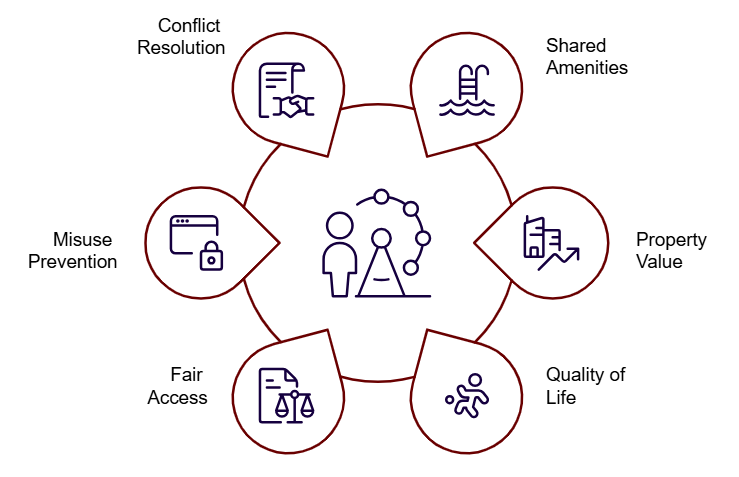
For example:
Efficient management through tools like HOA software ensures these shared resources are utilized effectively and equitably, keeping homeowners satisfied.
HOAs need a clear and systematic way to address situations where residents break community rules, such as parking in unauthorized areas, failing to maintain their property, or making excessive noise.
Simplifies and organizes this process by providing tools to:
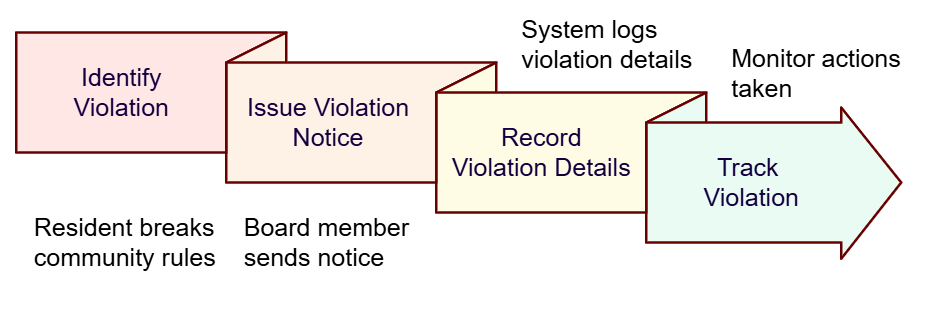
For instance, if a resident repeatedly parks in a no-parking zone, the software can log the incidents, send automated warnings, and escalate the matter to fines if necessary, ensuring proper rule enforcement.
One of the best aspects of software like this is its ability to generate reports and analytics. Automatically collects and organizes data on various aspects of the HOA, such as finances, community activities, and resident behavior. These insights are then presented in the form of easy-to-read reports or dashboards.
A) Insights into Community Dynamics: – Property managers analyze trends in the community, such as:
B) Understanding Financial Health: – The software tracks key financial metrics, such as dues collection, overdue payments, and budget allocations. This helps property managers and board members make informed financial decisions, ensuring the community remains financially stable.
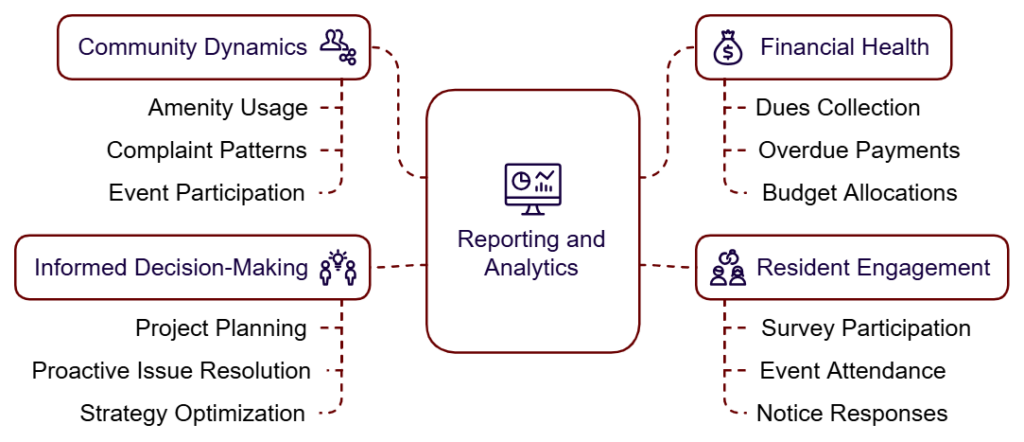
C) Resident Engagement Levels: – By analyzing how residents interact with the community (e.g., participation in surveys, event attendance, or response to notices), property managers can identify areas to improve communication or increase involvement.
D) Informed Decision-Making and Strategic Planning: – With clear, data-driven insights, property managers and board members:
If analytics show a spike in maintenance requests during the rainy season, the HOA can allocate extra resources for that period or schedule preventive maintenance in advance, improving efficiency and resident satisfaction.
In summary, affordable HOA software can revolutionize the way homeowner associations manage their daily operations. From enhancing communication and streamlining financial management to enabling easy permit requests and automating violation tracking, such systems provide the tools necessary for effective governance. Property-xRM, powered by Microsoft Dynamics 365, stands out as a comprehensive and affordable platform tailored for HOAs.
With features like automated communication, streamlined financial management, and real-time analytics, Property-xRM empowers HOAs to simplify their operations and focus on building stronger communities..
Ready to elevate your HOA management? Explore how Property-xRM can transform your operations and enhance community living today!


